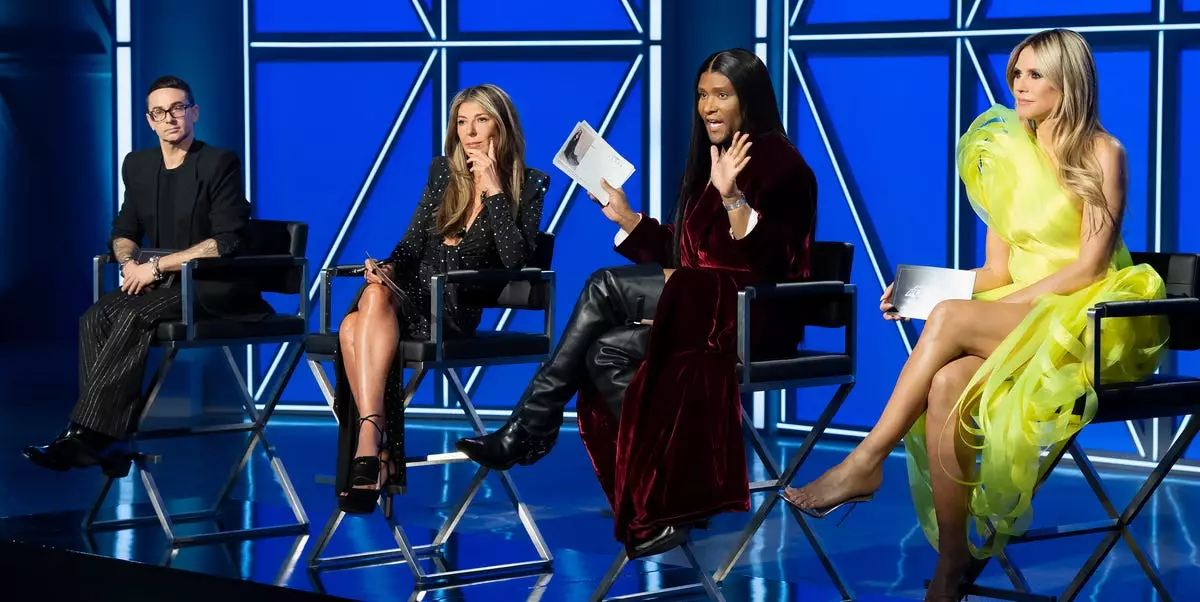As Project Runway makes its highly anticipated 21st season debut, it doesn’t simply restart; it reinvents itself as a mirror reflecting the dynamic and ever-evolving landscape of modern fashion. The show’s return feels more potent and authentic than ever, driven by a genuinely diverse cast and a panel of influential voices that push boundaries. With Heidi Klum back at the helm and Nina Garcia’s unwavering judgment, the series enters a new chapter that celebrates not only craftsmanship but also cultural relevance. This isn’t just a reality competition—it’s a platform for societal dialogue, where fashion becomes a powerful voice for change.
In a landscape saturated with superficiality, Project Runway’s comeback exemplifies how fashion media can serve as an empowering mirror of societal progress. The inclusion of a transgender designer and twin brothers alongside seasoned veterans demonstrates an earnest commitment to authenticity, embracing identities beyond conventional standards. It underscores a belief that fashion, at its core, is a reflection of identity, societal shifts, and collective consciousness. This season boldly affirms that inclusivity and representation are not just buzzwords but essential to innovating and inspiring future designers.
Leadership with Vision: Judges Who Challenge and Inspire
Nina Garcia’s long-standing role as a judge provides a stabilizing yet progressive force. Her insights emphasize that fashion is an ongoing cultural conversation, a sentiment rooted in her reflection that the show has continuously mirrored societal evolution—whether through conversations about HIV, size diversity, or gender identity. Her perspective elevates the show from entertainment to an authentic commentary on cultural progress.
Meanwhile, Law Roach’s unfiltered and provocative opinions inject a fresh, unapologetic energy into the judging panel. His knack for calling out authenticity and pushing designers to elevate their concepts demonstrates a commitment to nurturing not just technically skilled creators but visionary storytellers. His influence encourages contestants to explore themes that resonate with and challenge contemporary audiences, making each runway a statement rather than just a showcase.
Heidi Klum’s return as host reaffirms the show’s stability, yet her spirit now carries a deeper understanding of the cultural shifts happening around her. She embodies the bridge between the show’s legacy and its future, championing emerging talent and fostering an environment where vulnerability and boldness coexist.
Mentorship and Diversity: Cultivating the Future of Fashion
Christian Siriano’s mentorship adds an extra layer of depth and guidance, especially in a season that champions such an eclectic pool of designers. His commendation of the younger generation, particularly the Gen Z contestants, underscores a vital truth: fresh perspectives are crucial to innovation. These young designers, armed with awareness of today’s cultural climate, are redefining what high fashion truly means.
The inclusion of a transgender designer with a compelling story highlights the show’s commitment to authentic storytelling and the importance of personal narratives in fashion. Fashion is no longer just about aesthetics; it’s about giving voice to diverse experiences and embracing individual authenticity. Siriano’s pride in supporting trans talent demonstrates that promoting inclusivity is not a sacrifice but a strength—a catalyst for richer, more meaningful design discourse.
Reshaping the Cultural Narrative Through Fashion
Project Runway’s legacy is steeped in pushing boundaries and fostering authenticity. This season exemplifies how fashion can serve as a mirror to cultural change, embracing conversations around identity, representation, and societal norms. It challenges viewers to see beyond glamour, encouraging a deeper understanding of how design intersects with issues of race, gender, sexuality, and identity.
By fostering an environment where bold creativity is celebrated as a form of activism, the show indeed energizes the fashion industry to confront its own biases and evolve. It signals that future designers are being shaped not only by their technical skills but also by their courage to confront societal truths. This is a pivotal moment—an awakening of fashion’s potential to be a conduit for societal transformation, not just superficial aesthetics.
Ultimately, Project Runway’s latest season reminds us that fashion isn’t merely about what we wear but about what we stand for. The show’s reinvigoration affirms that embracing bold narratives and diverse voices can propel the industry forward—creating runway moments that are truly unforgettable and culturally impactful.

